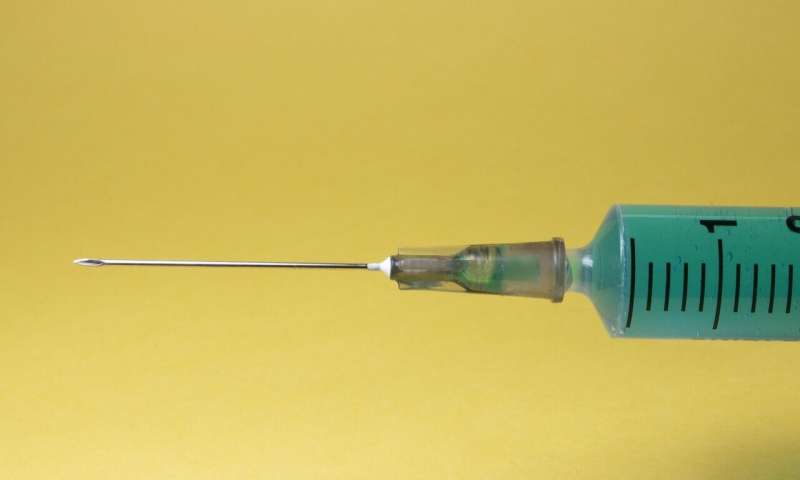Challenges, Innovations, and Future Directions in Dengue Vaccine Development

Dengue fever, caused by the dengue virus (DENV), remains a significant global health concern, threatening nearly half of the world's population in endemic regions. Over the years, the quest to develop an effective dengue vaccine has faced numerous obstacles, evolving from rudimentary techniques to sophisticated biotechnological approaches.
Historically, early efforts included unconventional methods such as using ox bile to weaken the virus and chemical treatments involving infected mosquitoes. These approaches, however, proved inadequate due to safety concerns and limited efficacy. The urgent need to combat the disease, especially in regions where dengue poses a constant threat, prompted scientific advances leading to the development of more refined vaccines.
Recent reviews, such as the one published in Pediatric Investigation, highlight the current landscape of dengue vaccines, focusing on promising developments and ongoing challenges. Notable vaccines include CYD-TDV (Dengvaxia), TAK-003, and Butantan-DV, each with its unique profile and limitations.
Dengue virus encompasses four distinct serotypes (DENV-1 to DENV-4), eliciting both protective and pathogenic immune responses. An initial infection typically triggers serotype-specific immunity, but subsequent infections can result in severe disease manifestations, partly due to a phenomenon known as antibody-dependent enhancement (ADE). ADE occurs when non-neutralizing antibodies facilitate viral entry into immune cells via Fcγ receptors, suppressing antiviral defenses and increasing viral replication, which can lead to severe dengue.
The first licensed dengue vaccine, CYD-TDV (Dengvaxia), demonstrated efficacy in phase III trials but showed reduced protection against DENV-1, DENV-2, and DENV-3. Its use was recommended primarily for individuals with confirmed prior DENV infection, limiting widespread application due to logistical challenges in administering a three-dose regimen over a year. Consequently, Dengvaxia was withdrawn from general use, although the WHO still endorses it for certain age groups with previous dengue exposure.
The second candidate, TAK-003, underwent extensive phase III trials across dengue-endemic countries, showing overall efficacy of approximately 61.2% against current infections and 84.1% against hospitalized cases. It offered strong protection against DENV-1 and DENV-2, but due to limited cases of the remaining serotypes during trials, efficacy against DENV-3 and DENV-4 remains uncertain. TAK-003 requires two doses, posing logistical challenges similar to Dengvaxia.
In contrast, the Butantan-DV vaccine, which utilizes a single-dose regimen, presents a simpler solution for regions with limited healthcare infrastructure. Data indicate an overall efficacy of around 73.6% in sero-naïve individuals and up to 89.2% in those previously exposed to dengue, with significant reductions in severe disease manifestations. Yet, efficacy against DENV-3 and DENV-4 awaits further validation.
A persistent challenge in dengue vaccine development is ADE, which can exacerbate disease severity post-vaccination. Cross-reactive, non-neutralizing antibodies targeting conserved regions of the DENV envelope protein may inadvertently promote immune responses that weaken antiviral activity, emphasizing the need for vaccines that avoid eliciting such problematic antibodies.
Experts emphasize that understanding ADE at the molecular level, especially the role of conserved epitopes and Fcγ receptor signaling, is vital. Future vaccine strategies should include phase IV trials to refine efficacy, develop adaptable formulations for diverse populations and serotypes, and consider regional DENV variants.
Advances in vaccine technology, such as mRNA platforms, offer promising avenues for countering ADE and broadening protective coverage. Global collaboration among researchers, health agencies, and manufacturers will be crucial in refining these innovations. With concerted efforts, the goal of eliminating dengue worldwide appears increasingly attainable.
Source: https://medicalxpress.com/news/2025-04-future-dengue-vaccine.html
Stay Updated with Mia's Feed
Get the latest health & wellness insights delivered straight to your inbox.
Related Articles
Trader Joe's Recalls Garlic Cheese Curds Over Listeria Contamination Risk
Trader Joe's has recalled Face Rock Creamery's garlic cheese curds due to Listeria contamination. Learn about the risks, affected products, and safety tips.
Mepolizumab Significantly Reduces Exacerbation Rates in COPD Patients with Eosinophilic Phenotype
Mepolizumab significantly decreases the rate of moderate and severe exacerbations in COPD patients with eosinophilic phenotype, offering a new targeted approach for managing this condition.
Advancements in Brain Modeling: Linking Micro and Macro Neural Activity Through Multiscale Simulations
Innovative multiscale simulations now connect molecular-level changes to large-scale brain activity, advancing neuroscience research and medical applications.
Breakthrough in Targeted Gene Therapy Offers New Hope for Barth Syndrome Patients
Scientists have discovered that blocking the gene ABHD18 can restore mitochondrial function and improve heart health in Barth syndrome models, opening new avenues for targeted treatment of this rare genetic disorder.



